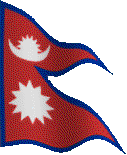
Website on the Sherpas of Nepal
An introduction to Sherpa language
 |
Sherwa mi Website on the Sherpas of Nepal An introduction to Sherpa language |
|
| introduction: | English | German | French | Italian |
| dictionaries: | Sherpa-English /
English-Sherpa (updated and extended, 27/12/2009 |
Sherpa-German | Sherpa-French | Sherpa-Italian |
| German-Sherpa | ||||
| texts: | Sherpa-English | Sherpa-German | Sherpa-French | Sherpa-Italian |
| numbers: | Sherpa-English | Sherpa-German | Sherpa-French | Sherpa-Italian |
| verb conjugation: | Sherpa-English | Sherpa-German | Sherpa-French | Sherpa-Italian |
The Sherpa language is only a spoken language. There have been attempts in recent years to introduce a written form of this language based on the Tibetan script. But this is not an easy undertaking. The Sherpa language definitely goes back to a Tibetan dialect spoken in the eastern Tibetan Kham province in the 15th century, but it has developed in its own way for the last 500 years. In modern times, it has been enriched by a number of words taken from Nepali or English. Even within the Sherpa area one finds a lot of regional differences in the current use of the language. In Khumbu, for example, the use of words is a bit different from that of Pharak, Shorong (nep.: Solu), Helambu, Rolwaling, the Arun valley, Darjeeling etc. In the following list, the words have been written in the way they are used in Lhakpa's home area, the Takshindu region of Shorong.
For this list we have used a simplified way of transcription which may need a few explanations:
ch is pronounced like ch in cheap
j is pronounced like j in jam
ph is pronounced as a bi-labial f-sound
y is pronounced like y in young
z is a voiced s-sound as in zero
zh is pronounced like j in the French word jour
Without special notification, the vowels are pronounced short and open. In other cases we have provided a short note on the pronunciation according to the list below:
a is a short a (as in the English word brass)
â is pronounced as a clear voiced long a (as in the English word large)
e is pronounced like e in let
ê is pronounced like e in bed
ä is pronounced like a in bad
i is for short i
î is for long i
o is for open and short o like in pot
ó is for open but long o like in board
ô is for long and closed o as in the German word Boot
u is for short u
û is for long u
ü is pronounced like the u in the French word rue